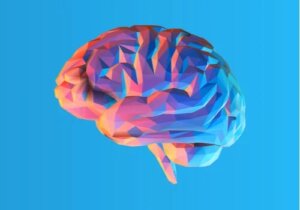The Bilingual Brain: Advantages and Disadvantages

Experts used to think that speaking two or more languages worsened your cognitive abilities. In fact, they even thought it affected your moral values and political views. However, nowadays, they know a lot more about how the bilingual brain works. Indeed, they now recognize that being bilingual has considerably more benefits than disadvantages.
This article explains some of the functions and characteristics of the brains of people who speak more than one language. You might’ve guessed some of them already. However, you also might be surprised by some of the others.
Bilingualism
Bilingualism is an individual’s ability to speak two or more languages (multilingualism) in any situation. In addition, they speak the relevant languages equally effectively. Bilingualism is further categorized into simultaneous bilingualism and successive bilingualism. Simultaneous bilingualism occurs when a person has learned two languages from birth. Successive bilingualism happens when the person learns a second language after having learned one already. For example, they learn it in classes. Or perhaps they moved to another country.
Experts think that more than half of the world’s population is bilingual. The percentages of bilingualism vary according to each country. In Europe, it’s around 56 percent, in Canada 20 percent, and in Luxembourg around 99 percent.

Since there are so many bilingual people in the world, researchers from the field of cognitive psychology have become interested in studying their underlying cognitive processes. In fact, they’ve discovered that monolingual and bilingual people exhibit different trajectories of development, efficiency, and even cognitive performance.
Researchers are interested in bilingualism with respect to the neuroplasticity of the brain. In other words, the brain’s ability to modify itself based on experience. It’s the environment, as opposed to individual preferences, that mainly determines bilingualism. Hence, this makes it an exciting subject for the world of science.
Cognitive characteristics of the bilingual brain
There are no significant harmful effects in childhood attributed to learning more than one language. However, there are some advantages and disadvantages at the functional level.
Bilingual people consider that, of the two languages they speak, one dominates. This is always the case, even if they learned the two languages simultaneously.
For this reason, they’ll always need to use more cognitive effort to speak the secondary language. Furthermore, when they speak the secondary language, their performance reflects this extra effort. However, even when bilinguals speak their dominant language, there are certain differences between them and monolingual speakers.
Disadvantages of being bilingual
Generally, bilinguals have weaker verbal skills in each of their languages than monolinguals. For example, they have a lesser vocabulary. However, this varies. In fact, it depends on the total number of words in the two respective languages.
Researchers have observed that bilingual people are slower at naming objects, producing words, and having a word “on the tip of their tongue” for longer. In fact, generally, bilingual people take longer to think of words. However, this is less marked with common words or sentences like “house” or “How are you?”, for example.
The main hypothesis used to explain these disadvantages is that when bilingual people want to say, write or listen to a word, they can’t stop that word from being activated in their other language. For example, if someone who’s bilingual in English and Spanish wants to say “thank you” they’ll also activate the word “gracias” in their mind.
Advantages of being bilingual
With two terms being activated at the same time, the bilingual needs to have the capacity to select one and inhibit the one that’s not needed. Furthermore, they usually have to consider a whole conversation in this respect, not just one word.
The cognitive ability that lets them do this is called executive control. These particular executive functions are inhibition, cognitive flexibility, and working memory. They’re a set of skills that allows the process of information and the selection of what’s relevant and necessary. They also prevent interference.
Bilingual children and adults exhibit a medium to large executive control advantage over monolingual people. This ability relates to academic achievement as well as better long-term mental health and well-being. In addition, researchers have discovered that this advantage increases the bilingual’s cognitive reserves. This can delay the onset of cognitive decline or Alzheimer’s for up to four years.
“A man who knows two languages is worth two men.”
-French proverb-

Characteristics of the bilingual brain
Regarding executive control, neuroimaging studies show that bilinguals have more activation in certain areas of the brain. These areas are the caudate nucleus of the left hemisphere in the dorsolateral prefrontal cortex, the cingulate cortex, and the supramarginal gyrus.
Furthermore, research suggests that the bilingual brain has more neurons. This could be due to prolonged exposure to bilingualism. Michelli et al found a higher density of gray matter in the parietal regions of Italians and English bilinguals, compared to Italian monolinguals.
Bilingual adults also have a greater amount of white matter in their brains. White matter increases connectivity between different areas of the brain. We see this increase mainly in the corpus callosum. This is a structure that allows connection between the two hemispheres of the brain.
Therefore, the old belief that speaking two languages is disadvantageous can be dispelled. Indeed, people who speak two languages actually have greater cognitive and attentional control. Furthermore, this cognitive advantage also influences other activities. In fact, it increases cognitive reserve, activation, and brain anatomy. In addition, speaking other languages allows you to communicate with others, travel further with no linguistic restrictions, and improve your brain.
All cited sources were thoroughly reviewed by our team to ensure their quality, reliability, currency, and validity. The bibliography of this article was considered reliable and of academic or scientific accuracy.
- Bialystok, E., Craik, F.I.M. y Luk, G. (2012). Bilingualism: consequences for mind and brain. Trends in Cognitive Science, 16(4), 240-250.
- Costa, A., Hernández, M. y Baus, C. (2015). El cerebro bilingüe. Mente y Cerebro, 71, 34-41.
This text is provided for informational purposes only and does not replace consultation with a professional. If in doubt, consult your specialist.








